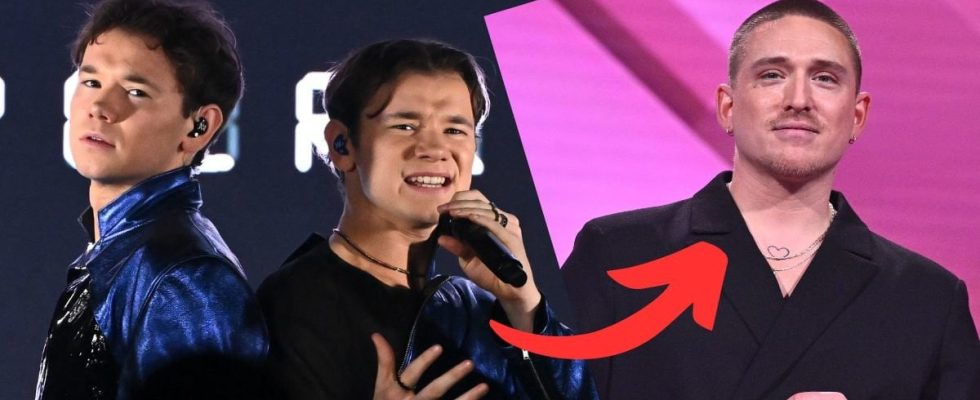Melodifestivalen 2024 has, just like in previous years, offered all kinds of music and performances, everything from pop hits and epadunk to dance band music and rock. Now the Swedish people have selected twelve entries to send to the final – and on the ninth of March the artists will finally settle for the glorious win and a place in this year’s Eurovision Song Contest.
Who actually made the most original song? Photo: Claudio Bresciani/TT This is how the odds look before the Middle Final
According to the odds, the big favorites at the time of writing are the Norwegian twins Marcus & Martinus, with Danny Saucedo and Jacqline as the main contenders.
Among the entries that have the worst chance of winning, we find Lisa Ajax, closely followed by Cazzi Opeia and Jay Smith.
The odds have spoken, but of course no one knows how it will actually end until the votes are counted. To get a new perspective on the matter, we enlisted the help of the AI tool ChatGPT to analyze the final entries from a different perspective: originality.
READ MORE: The Swedish people have had their say: That’s what we think of Marcus & Martinus
AI analyzes the final entries in Melodifestivalen
If an Interim Contribution feels new and unique, it often has a greater chance of being remembered and liked by the Swedish people, which makes it an important factor to investigate.
To find out, we asked ChatGPT to come up with five criteria that determine whether a song is original or not:
Then we sent in all the finalists’ lyrics one by one and asked the chatbot to give a ranking between 1 to 5 on each criterion, where 1 = original and 5 = not original.
Finally, we had the AI add up the scores from the five points to give each entry a final score indicating its originality, on a scale from 5 (original) to 25 (not original). Read on to see the results.
ChatGPT is an AI language model that can produce, analyze and process texts. Photo: Pexels.
READ MORE: How to use ChatGPT’s paid version – completely free
AI: That song is most original in Mellofinalen
According to ChatGPT, the finale’s first entry in the starting order – Maria Sur’s “When I’m Gone” – is the last on the original scale. With a score of 19 out of a possible 25, the AI believes that the song has very few elements that stand out and make it unique. For the “Phrases” criterion, for example, the song gets 4 points, which is justified as follows:
“The use of phrases like ‘just like a river’ and ‘just like an island’ and the repetition of ‘Will you love me when I’m gone?’ lean towards familiar clichés.”
Maria Sur has the least original song in the final, according to ChatGPT. Photo: Claudio Bresciani/TT
Close behind Maria Sur are Jacqline’s “Effortless” and Medina’s “Que Sera”, with 18 points each.
In the lower middle tier we find Marcus & Martinu’s “Unforgettable” (16 points) and Danny Saucedo’s “Happy That You Found Me” (16 points). So none of the pre-favourites are at the top of ChatGPT’s originality ranking – so which entry is it? Yes, Daughter.
Her entry “It’s Not Easy to Write a Love Song” received an impressively low score of 12 out of a possible 25. ChatGPT was particularly impressed by the song’s emotional depth and “interesting twist on the classic love theme by exploring the difficulty of writing a love song”.
Big congratulations we say to Daughter!
ChatGPT nominates Dotter’s contribution to Mellofinalen’s most original song. Photo: Claudio Bresciani/TT The originality of the final entries – here is the full ranking
Therefore, we used ChatGPT in the analysis
The reason we used ChatGPT (more specifically, the paid version GPT-4) in the analysis is that it is an AI model that has been trained on millions of songs and has a great knowledge of what song lyrics usually – and don’t usually – look like.
Nevertheless, take the results in the article with a grain of salt, as the tool can give varying answers depending on both how and how many times you ask it.
READ MORE: The middle star has had a tumor removed – just days before the final
